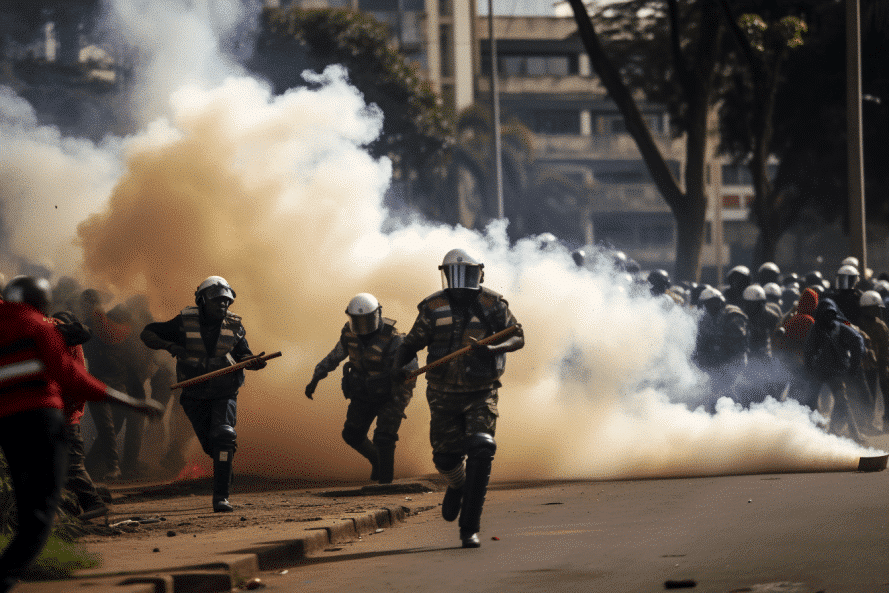As the US government suggests Kenya steer a multinational force in Haiti, it concurrently warns against possible violent misdeeds by Kenyan police. This emerges as 1,000 officers may soon travel to Haiti to confront gang violence.
This marks a complex turn for a police department frequently charged with acts of murder and torture by human rights monitors, including alleged civilian shootings during Kenya’s COVID-19 curfew. Local reports affirm that police fatally shot more than 30 individuals in July, primarily in Kenya’s economically disadvantaged areas, during protests spurred by soaring living costs.
In response to these protests, the US, in collaboration with 11 other nations, expressed distress about the loss of lives and high levels of violence, including live rounds.
As the current president of the UN Security Council, the US is getting ready to propose a resolution authorizing a Haitian mission led by Kenyan police, despite their limited international experience in large deployments and their lack of French language proficiency, the primary language spoken in Haiti.
“This is not a typical peacekeeping force,” asserted Linda Thomas-Greenfield, the US ambassador to the UN.
After over nine months of unsuccessful appeals for a nation to spearhead efforts to restore order in Haiti, the poorest country in the Western Hemisphere, Kenya finally expressed interest. Kenya’s foreign minister stated his government’s consideration to lead a force in Haiti and deploy 1,000 police officers to train the Haitian National Police and secure strategic installations.
While the US Secretary of State Antony Blinken commended Kenya for even considering the role, given the difficulty in rallying international forces for Haiti, some organizations monitoring alleged police misconduct in Kenya expressed concern.
Otsieno Namwaya from Human Rights Watch voiced concerns about Kenya potentially exporting its problematic police practices to other parts of the world.
While Kenya’s security forces have had longstanding roles in neighbouring Somalia and eastern Congo, Kenya’s participation in UN peacekeeping missions is relatively modest compared to other African nations.
Peter Kiama, the executive director of the Independent Medico-Legal Unit, stated his lack of concern based on his unawareness of any complaints raised by the UN during Kenya’s deployments.
Unlike traditional peacekeeping missions in Haiti, the Kenyan police would likely be in command rather than answer to a UN force commander.
While this move garners support from Haitian Prime Minister Ariel Henry in Kenya, the police force’s actions during recent protests triggered heated debates in the National Assembly.
Despite substantial training and support from the US and European Union to promote police accountability and professionalism, issues with Kenya’s police force persist. Even Kenya’s National Police Service acknowledged the problem, stating that it does not have a “shoot to kill” policy amid claims of continuous abuse of force leading to deaths.
As the US proposes Kenya to lead a multinational police force in Haiti, concerns regarding Kenya’s police conduct have surfaced. These fears are fueled by a history of allegations of police misconduct, including human rights abuses during protests. The proposal also brings the broader question of accountability and the adequacy of training for peacekeeping forces, especially when deployed far from home and in culturally different settings. The outcome of this initiative may have significant implications for future peacekeeping missions and the global struggle for human rights and law enforcement reform.




